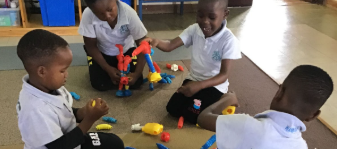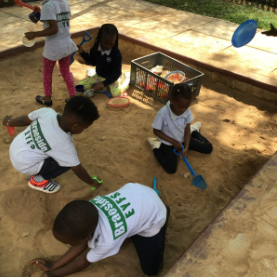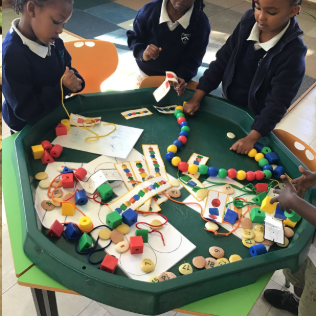Brain Development through Sensory Play in EYFS

14th June 2025
Did you know that each sensory experience sends signals to the brain?
At BTH, children learn best by exploring the world around them and one of the most important ways we support early learning is through sensory play. When children scoop, squeeze, explore different textures and materials and listen, they build a vital connection in the brain.
These help to strengthen neural pathways and develop key skills like:
1. Cognitive growth -By exploring different materials, children learn to compare, classify and make sense of their environment.
- Enhances Language development -As children describe how things feel, smell, or sound, they build a richer vocabulary, which improves their communication.
- Strengthen fine motor skills -Molding playdough, threading beads, or digging in the sand all help children develop muscles in their hands and fingers.
- Encourages curiosity and creativity – Open-ended sensory experiences allow children to make choices, experiment and imagine new possibilities, fostering creative thinking in early childhood.
- Social skills and cooperation – Group sensory play activities enhance sharing, turn-taking and teamwork.
In EYFS, we incorporate a variety of sensory play opportunities throughout the day, both indoors and outdoors. These nurture growing minds and help children develop the confidence they need for a lifetime of learning. When children play, they not only have fun but also build their future.










